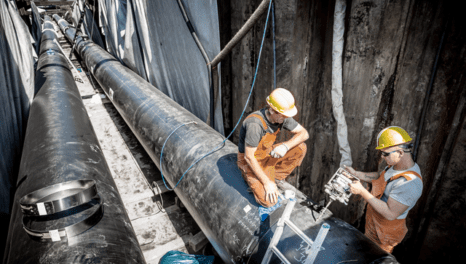Consumers matter
Victoria Pelka, senior policy researcher at Citizens Advice, talks about the importance of consumer engagement.
29th May 2018 by Networks

Recently, Ofgem has put a renewed focus on how energy network companies engage with their customers and stakeholders. In their framework consultation for the next energy network price control (RIIO2), Ofgem made it clear that consumers should be given a stronger voice and introduced new models for stakeholder engagement.
Up and down the country, energy network companies are preparing their stakeholder engagement plans for RIIO2. They’ll target industrial and commercial consumers, local authorities, electricity generators, environmental groups and others. But we think it’s also critical to engage domestic and small business energy consumers.
A common view in the energy networks sector is that infrastructural, strategic and financial decisions are too complex and too removed from people’s everyday experience for consumers to be interested. Recent research by Ofgem reinforced this view. Participants concluded that experts and impartial representatives such as Citizens Advice would be best placed to consider the longer-term needs of consumers and the network.
However, these findings don’t mean that domestic and small business consumers shouldn’t be engaged in preparation for RIIO2. But, that when engaging them, networks shouldn’t be talking about the complexities of output measures, cost indexation or asset management. Networks should be engaging people in a discussion on the future of our energy system in language that is accessible and using appropriate methods.
Engagement for RIIO2 must be seen in the context of engagement in the UK’s energy transition. The next 10 years are crucial for Britain to meet its own CO2 targets and energy networks are a key enabler of the decarbonisation of transport, heat, and energy. But the energy transition is not just a technical challenge, it is a social one too. The values, views and behaviours of consumers – think the ban on onshore wind, take up of electric vehicles, heat pumps, solar panels, time of use tariffs and the acceptability of hydrogen – will define the current and future challenges that energy networks have to solve.
Learning from engagement experiences in the UK and abroad shows that people do care. They care about the impact of changes in the energy system on their bill, their well-being, their community, societal fairness, and the environment. If people were disinterested in energy issues, Transition Towns and community energy groups wouldn’t exist.
You can get it, if you really want. But you must try.
Recent research Citizens Advice commissioned by Involve found that energy network companies have invested greatly in engaging their stakeholders in recent years. But more can be done. In our new report, “Strengthening the voice of consumers in energy networks’ business planning”, we ask companies, Ofgem and the government to widen the range of topics that domestic and small business consumers are engaged on. We are also calling on them to explore opportunities to engage using deliberative methods.
Engagement for RIIO1 focused on reliability, service standards and willingness to pay. But, the scale of change in the energy industry and the challenges that lie ahead means engagement of consumers on more complex, long-term issues is needed. Our report makes suggestions for what these issues could be, and who – energy network companies, Ofgem or the Department for Business, Energy and Industrial Strategy (BEIS) – may be best placed to conduct that engagement.
Beyond RIIO2
Decisions about our energy network will affect all consumers. They may wish to or be required to change their behaviour, pay more, install new devices in their homes and streets, or tolerate street works and interruptions to supply. In solving the upcoming challenges, companies will need to make trade-offs and explore new solutions, and policy makers will need to develop new strategies and targets. Consumers, citizens and communities should be able to voice what they think is desirable, feasible, and tolerable.
Consumers should be able to influence decisions about our energy network infrastructure, not least because they are the ones who pay for it. But their engagement is also of importance to making the energy transition in the UK a success.
Comments
Login on register to comment
Related content

Heat
Electric storage heating – a Cinderella solution
Why has electric storage heating been overlooked as we seek to tackle decarbonising domestic heat?

Heat
Prospects bright for landmark East London Heat Network
New Vattenfall-Cory partnership marks step towards record-breaking heat network capable of serving over 10,000 homes

Heat
New construction director at Switch2 Energy
Appointee brings experience from Vattenfall and Eon
Related supplier content
![‘Learning by doing’ on the road to net zero [test product]](https://networksonline.s3.amazonaws.com/products/images/3.jpg)
People & Skills
‘Learning by doing’ on the road to net zero [test product]
DSO director Andrew Roper discusses 'Learning by doing'

Power
Load patterns and lockdown: how Covid-19 is impacting electricity networks
Insights into dynamics on the low voltage network as the outbreak unfolds

Downloads
Protect electrical equipment from insulation failure
Insulation faults are a major cause leading to the eventual failure of electrical equipment. Partial discharge (PD) is a very reliable indicator of developing insulation faults. Regular PD testing allows users to detect and analyze PD activity